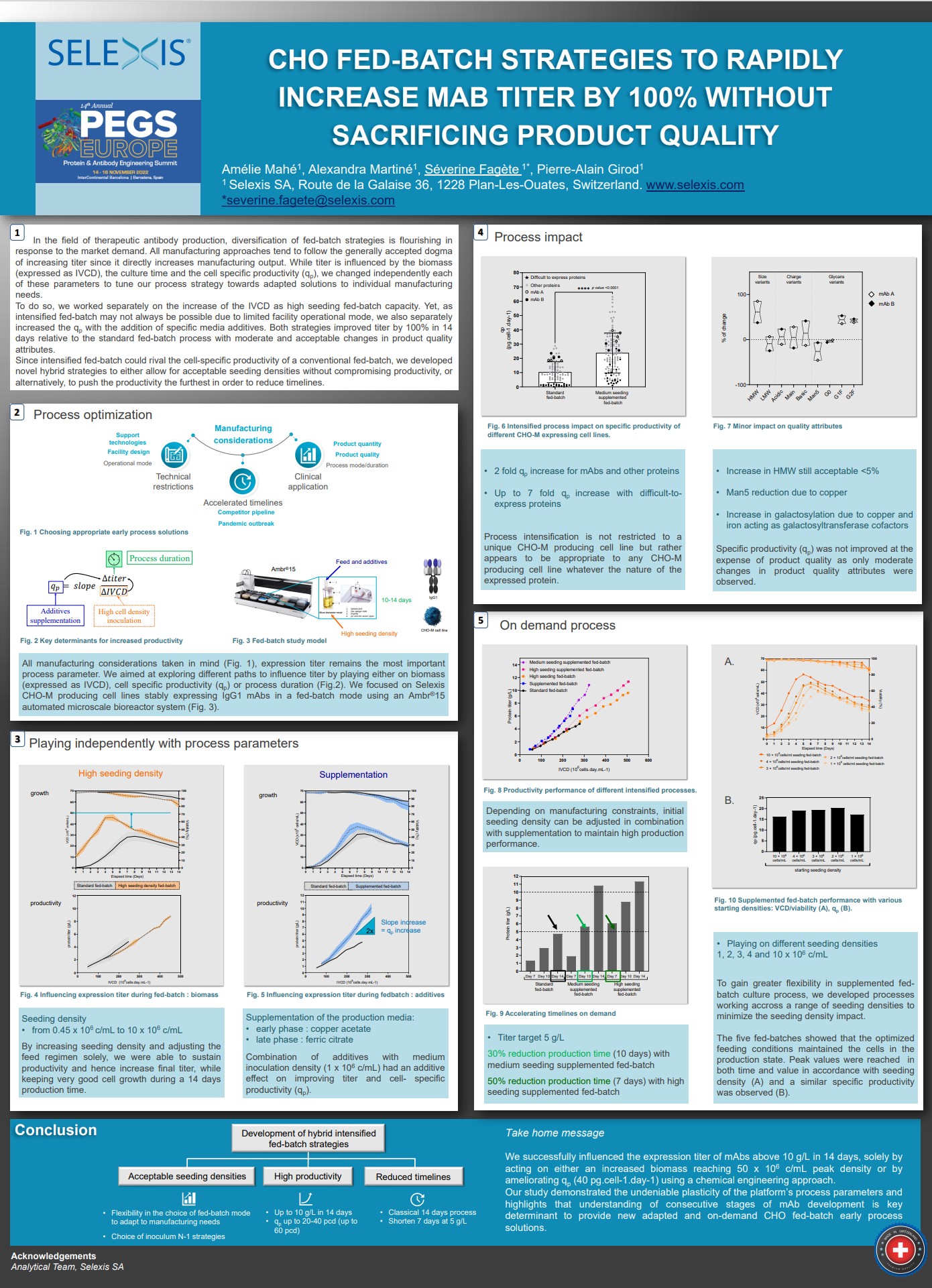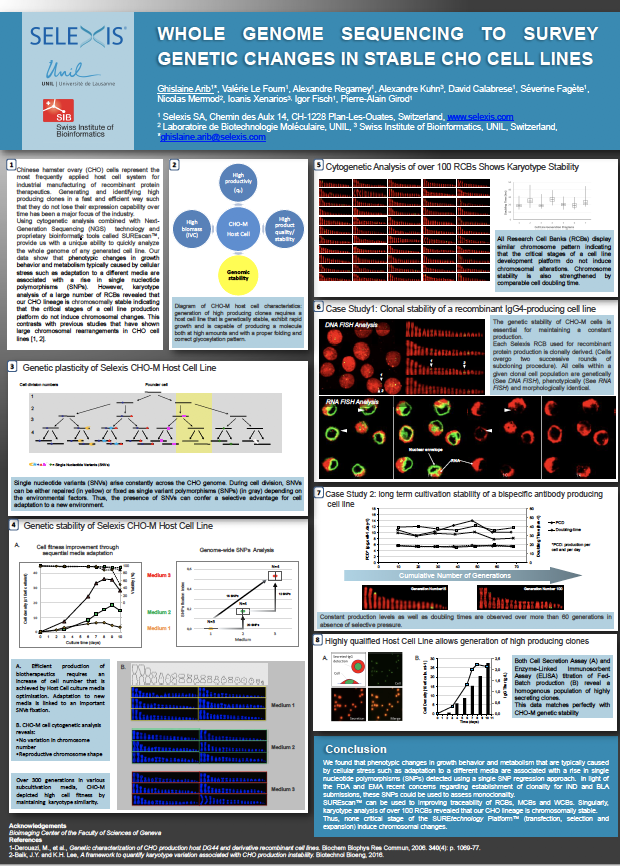In the field of therapeutic antibody production, diversification of fed-batch strategies is flourishing in
response to the market demand. All manufacturing approaches tend to follow the generally accepted dogma
of increasing titer since it directly increases manufacturing output. While titer is influenced by the biomass
(expressed as IVCD), the culture time and the cell specific productivity (qp), we changed independently each
of these parameters to tune our process strategy towards adapted solutions to individual manufacturing
needs.
To do so, we worked separately on the increase of the IVCD as high seeding fed-batch capacity. Yet, as
intensified fed-batch may not always be possible due to limited facility operational mode, we also separately
increased the qp with the addition of specific media additives. Both strategies improved titer by 100% in 14
days relative to the standard fed-batch process with moderate and acceptable changes in product quality
attributes.
Since intensified fed-batch could rival the cell-specific productivity of a conventional fed-batch, we developed
novel hybrid strategies to either allow for acceptable seeding densities without compromising productivity, or
alternatively, to push the productivity the furthest in order to reduce timelines.

1 min read
CHO Fed-Batch Strategies To Rapidly Increase mAb Titer By 100% Without Sacrificing Product Quality
Keywords: CHO Intensified fed-batch ambr15 2022

1 min read
Whole Genome Sequencing to Survey Genetic Changes in Stable CHO Cell Lines
Chinese hamster ovary (CHO) cells represent the most frequently applied host cell system for industrial manufacturing of recombinant protein therapeutics. Generating and identifying high producing clones in a fast and efficient way such that they do not lose their expression capability over time has been a major focus of the industry.
Using cytogentic analysis combined with next-generation sequencing technology and proprietary bioinformatic tools called SUREscan, provide us with a unique ability to quickly analyze the whole genome of any generated cell line. Our data show that phenotypic changes in growth behavior and metabolism typically cuased by cellular stress such as adaptation to a different media are associated with a rise in single nucleotide polymorphisms (SNPs). However, karyotype analysis of a large number of research cell banks (RCBs) revealed our CHO lineage is chromosomally stable indicating that the critical stages of a call line production platform do not induce chromosomalchanges. This contrasts with previous studies that have sown large chromosomal rearrangements in CHO cell lines.

